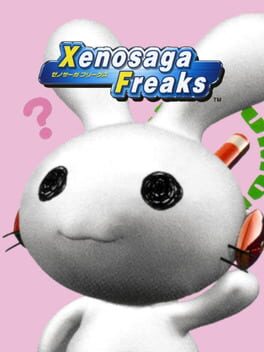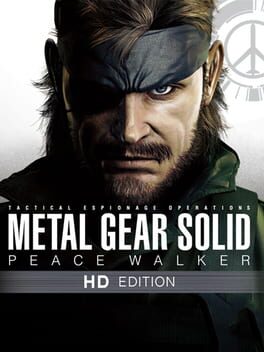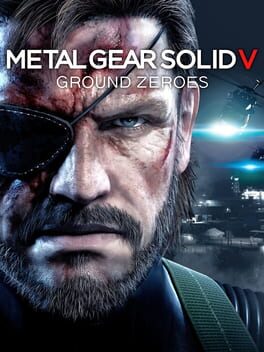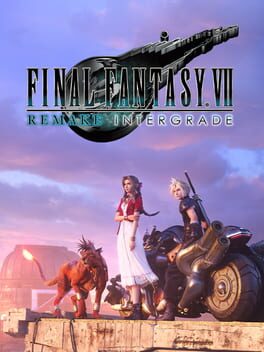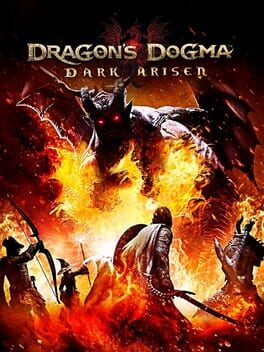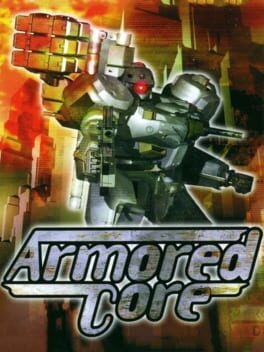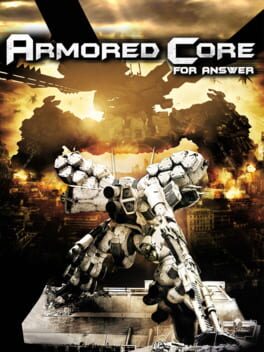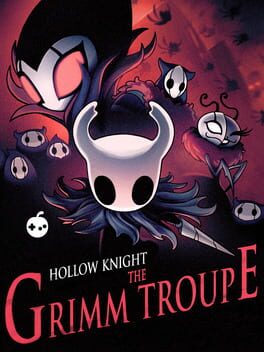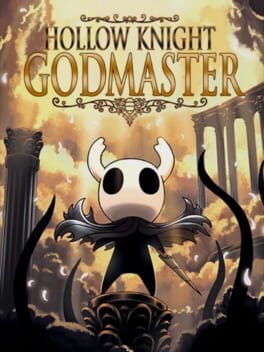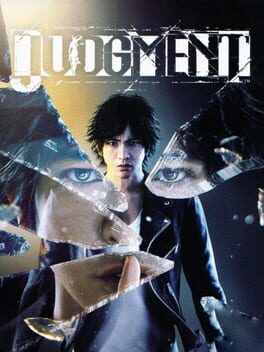Celicesama
2004
Surprised me in so many ways. Consistently very good in many areas from the way it further explores The Boss' and Snake's dynamic, to the integration of MSF and Mother Base to Big Boss' characterization and the thematic core of Outer Heaven, to the gameplay which, -in spite of some rough spots-, may be my favorite in the series thus far. Loved it.
True final boss had no right to go as hard as it did.
True final boss had no right to go as hard as it did.
Final Fantasy VII Remake manages to wholeheartedly embrace the quirks and identity of its source material while managing to stand on its own creatively; I think that's a pretty noteworthy achievement. It's so much more than just a shallow attempt to milk the most influential game of all time, despite what some naysayers may lead you to believe.
As for the gameplay, I think it's quite fun. Some very strong and interesting foundations in terms of blending turn-basedesque ATB and real-time action mechanics. It truly clicked with me when I realized I was supposed to play it akin to FFXII with more liberal use of the ATB as opposed to your traditional action-RPG game. Bosses are pretty hit or miss though. Great... when they aren't HP sponges, which is unfortunately 90% of the time.
If Rebirth can match this quality of storytelling while improving the gameplay (I'm hoping the quality of Intermission's gameplay was an indicator), as well as recreating and reinventing the original's best areas and moments, it'll earn a surefire place among my favorites in the franchise.
As for the gameplay, I think it's quite fun. Some very strong and interesting foundations in terms of blending turn-basedesque ATB and real-time action mechanics. It truly clicked with me when I realized I was supposed to play it akin to FFXII with more liberal use of the ATB as opposed to your traditional action-RPG game. Bosses are pretty hit or miss though. Great... when they aren't HP sponges, which is unfortunately 90% of the time.
If Rebirth can match this quality of storytelling while improving the gameplay (I'm hoping the quality of Intermission's gameplay was an indicator), as well as recreating and reinventing the original's best areas and moments, it'll earn a surefire place among my favorites in the franchise.
Base Game - 11/02/2024:
Takes a step back for every step it takes forward, meaning it's still more positive than it is negative, but only half as good as it could've been. For every innovative mechanic, there's an equally frustrating one. For how fun the exploration can be, it can also be mindnumbingly tedious. For the cool pieces of subtle storytelling and thematic tidbits in the lore, there's the painfully mediocre story that fails to deliver on both an emotional and deeper structural level. Still, at its peak, it's easily some of the most fun I've had with a game all year. Hoping Dragon's Dogma II can not only rectify the issues with this game, but fully realize the vision that Itsuno had wanted since the beginning.
Bitterblack Isle - 17/02/2024:
Easily the best part of the game. Doesn't quite capture the sense of scale or innovation that much of the base game does, but refines what worked with the base content (such as combat and dungeon design) and improves upon it tenfold. Delivers where the base game couldn't via characters, story, and game balance. Gacha mechanics suck ass, but the game was surprisingly a lot kinder to me than Xenoblade 2 was insofar as gacha mechanics in single-player RPGs are concerned. It's been a decade since and if Dragon's Dogma 2 manages to be even better than this DLC was, then we're in for some peak gaming. Itsuno, do not fail us.
Takes a step back for every step it takes forward, meaning it's still more positive than it is negative, but only half as good as it could've been. For every innovative mechanic, there's an equally frustrating one. For how fun the exploration can be, it can also be mindnumbingly tedious. For the cool pieces of subtle storytelling and thematic tidbits in the lore, there's the painfully mediocre story that fails to deliver on both an emotional and deeper structural level. Still, at its peak, it's easily some of the most fun I've had with a game all year. Hoping Dragon's Dogma II can not only rectify the issues with this game, but fully realize the vision that Itsuno had wanted since the beginning.
Bitterblack Isle - 17/02/2024:
Easily the best part of the game. Doesn't quite capture the sense of scale or innovation that much of the base game does, but refines what worked with the base content (such as combat and dungeon design) and improves upon it tenfold. Delivers where the base game couldn't via characters, story, and game balance. Gacha mechanics suck ass, but the game was surprisingly a lot kinder to me than Xenoblade 2 was insofar as gacha mechanics in single-player RPGs are concerned. It's been a decade since and if Dragon's Dogma 2 manages to be even better than this DLC was, then we're in for some peak gaming. Itsuno, do not fail us.
Final Fantasy VII Rebirth was a game I went in with somewhat high, but tempered expectations. I enjoyed Remake more than most I feel, but it still didn't quite hit the standard that the vast majority hold the property to. I expected much of the same out of Rebirth as I got out of Remake i.e. great characterization, solid combat, obviously stunning visuals, but also some of its downsides like quest design, bossfights, whisper shenanigans, and pacing, only covering the material that post-Midgar did in the original. I'm pretty glad to admit that for the most part, I was pretty wrong.
I want to get the negatives out of the way so I can gush about the positives. Firstly, exploration isn't great. I get it's trying to go for the same semi-open world approach that games like FFXII or the Xenoblade series are known for, but the objectives for each region are pretty stale and begin to wear themselves out by Corel. None of this is helped by the game's floaty movement, which is 100% a byproduct of the game's realism, but it doesn't suit this style of game at all. The combat trials are honestly pretty fun, but I can't help but feel they could've gone just a little bit further with it.
Another of the game's weakness is its tone. A little too faithful to the original perhaps, with the tonal whiplash being especially jarring during chapter 8 and 12. The game's faithfulness is a double-edged sword; it undoubtedly gives the game this soul that lets us known that it is invariably Final Fantasy VII in every respect and that it isn't ashamed of its identity, but I feel that there's a time and place for everything, and the game's goofier elements could've been placed a lot better.
Aside from those two major elephants in the room, I think it's safe to say that, in nearly every respect, this game is a massive, MASSIVE step up from Remake, holy shit. I want to emphasize the one thing Remake did well, which was its characterization. Virtually all of the main cast was a step up from how they were in the original, and Rebirth is no different. Everyone is given time to shine, be it in the story or the sidequests, not to mention the cast dynamics that do a great deal in carrying this main party into one of my favorites in ALL of gaming, no joke. The cast really gets the time to grow close with one another ,which (potential spoilers (?)) makes a certain character's betrayal hit harder than it ever did in the original.
Special attention needs to be given to how the original's most iconic moments were adapted. Some might say this was to the detriment of the game, citing how the fate/destiny shit ruins "that" moment, but personally speaking, I thought that it, as well as numerous other moments were massive upgrades from the original, charging them with all the emotion and gravitas a game of this scale warrants.
Combat had me worried after the first few hours, though I can now confidently say that it is indeed great. Not perfect, with the upgrade system and materia reslotting still being a tad annoying, but the flow of combat and the sheer amount of options you are given more than makes up for those tiny flaws. Not to mention that this time around, the bosses are actually really good and fun, for the most part at least. I need to make mention of chapter 11's main boss, which was probably my favorite in the whole game. The final boss stretch sucks tho.
Story is the most contentious. I can't really talk about it in detail without spoiling, but I honestly enjoyed it, fate shenanigans and all. I'll just leave it at this: Rebirth's story and ending made it so that part 3 is either a masterpiece that lives up to the story's ambition, or a total nonsensical crapshoot of a story that fumbles the bag. Either way, consider me excited for part 3.
I want to get the negatives out of the way so I can gush about the positives. Firstly, exploration isn't great. I get it's trying to go for the same semi-open world approach that games like FFXII or the Xenoblade series are known for, but the objectives for each region are pretty stale and begin to wear themselves out by Corel. None of this is helped by the game's floaty movement, which is 100% a byproduct of the game's realism, but it doesn't suit this style of game at all. The combat trials are honestly pretty fun, but I can't help but feel they could've gone just a little bit further with it.
Another of the game's weakness is its tone. A little too faithful to the original perhaps, with the tonal whiplash being especially jarring during chapter 8 and 12. The game's faithfulness is a double-edged sword; it undoubtedly gives the game this soul that lets us known that it is invariably Final Fantasy VII in every respect and that it isn't ashamed of its identity, but I feel that there's a time and place for everything, and the game's goofier elements could've been placed a lot better.
Aside from those two major elephants in the room, I think it's safe to say that, in nearly every respect, this game is a massive, MASSIVE step up from Remake, holy shit. I want to emphasize the one thing Remake did well, which was its characterization. Virtually all of the main cast was a step up from how they were in the original, and Rebirth is no different. Everyone is given time to shine, be it in the story or the sidequests, not to mention the cast dynamics that do a great deal in carrying this main party into one of my favorites in ALL of gaming, no joke. The cast really gets the time to grow close with one another ,which (potential spoilers (?)) makes a certain character's betrayal hit harder than it ever did in the original.
Special attention needs to be given to how the original's most iconic moments were adapted. Some might say this was to the detriment of the game, citing how the fate/destiny shit ruins "that" moment, but personally speaking, I thought that it, as well as numerous other moments were massive upgrades from the original, charging them with all the emotion and gravitas a game of this scale warrants.
Combat had me worried after the first few hours, though I can now confidently say that it is indeed great. Not perfect, with the upgrade system and materia reslotting still being a tad annoying, but the flow of combat and the sheer amount of options you are given more than makes up for those tiny flaws. Not to mention that this time around, the bosses are actually really good and fun, for the most part at least. I need to make mention of chapter 11's main boss, which was probably my favorite in the whole game. The final boss stretch sucks tho.
Story is the most contentious. I can't really talk about it in detail without spoiling, but I honestly enjoyed it, fate shenanigans and all. I'll just leave it at this: Rebirth's story and ending made it so that part 3 is either a masterpiece that lives up to the story's ambition, or a total nonsensical crapshoot of a story that fumbles the bag. Either way, consider me excited for part 3.
1997
This review contains spoilers
To be clear, I think Armored Core 4 was an aggressively mid game. A mid game with interesting foundations, but a mid game nonetheless. Everything from its mechanics to its story were major nothingburgers that stand out among not just this franchise, but the catalog of one of our medium's most storied directors. While iffy on a lot of For Answer at first, to say this game grew on me would be an understatement. I've nearly completed it 5 times at this point, finished every mission on both difficulties and S-ranked every mission on normal and hard. I think that says it all.
But beyond that, I think the gameplay is great and consistently thrilling, if not a bit lacking in the precision and strategy that I so loved from previous AC games. For what it lacks in its "AC-ness" it makes up for in fulfilling 4's goal of making fights feel as spectacular and as "anime" as possible. Seeing your NEXTs zip and zoom around these vast and empty landscapes, taking down colossal Arms Forts in a Herculean manner, dueling other NEXTs in high-octane combat, of which are among the series' most fun encounters despite lacking the mechanical finesse that oldgen duels had. Customization and garage-tinkering are as fun as ever, and it's a thrill coming up with some monster of a build to throw into this game's wide open sandbox levels and see it wreak havoc on some poor normals and MTs. It's all just a blast, though I think you really need those multiple playthroughs to really click with it; I don't think one playthrough does this game justice. I would know since I didn't quite love my first go-around. Still, you know it's fun when the rewards are damn near nonexistent and I still continue playing. I'm not the busiest person in the world, but I still need to manage my time which is why I rarely replay games unless I think they're worth replaying, and boy is this game worth replaying and then some.
Monumental a highlight as the gameplay is, I really want to zero in on the story here because I think it's probably what struck me the hardest about this game. I think the thing that 4A consistently does better than even the great works that Miyazaki would go on to direct would be the feeling of dread present. Miyazaki's games are known for their dread, but all with a tinge of hope as to not feel completely devoid; I think someting like Bloodborne stands as an example of this, and a game more hopeful than most give it credit for. While 4A does retain this lingering sense of hope, he hadn't quite found his footing as far as organically weaving it into the narrative.
For Answer is, however, the master of the simultaneous desolation and sentimentality that characterizes Miyazaki's style. His Ueda influences are as clear as ever, with the giant, spectacular Arms Fort fights, the meditative nature of the setting, and Kota Hoshino's complementary OST feeding into the quietude and desolation that Miyazaki so loves to imitate and integrate.
One thing I didn't quite love about the game's story on my first go-around was the mission structure. In past experience, it most resembles its direct predecessor, as well as ACVI. I've gone out of my way on social media to critique how VI's mission and chapter structure is pretty weak and overly linear compared to oldgen, and how I'd love a return to form with a sequel or something. Good to know that 4 and 4A were the progenitors of those ideas, with set chapters and a more concrete narrative structure.
Where For Answer just about outdoes VI in this regard are the sanctions in places within its structure. VI has a handful of choice missions that force you to choose between 2, sometimes 3 missions, often of little consequence until NG++. 4A, at face value, seems pretty similar, though the limited number of missions per chapter (an element that I didn't love at first but eventually grew on me) and the more involved nature of the corporations in its mission pathing (compare this to VI, where the corps only ever exist in the story and have no bearing on branching paths and new mission unlocks throughout your three playthroughs) put 4A handily over its indirect successor for me.
I also commend and appreciation 4A's use of perspective within its different routes. A lot of multiple ending based games do this, though more so than a lot of them, For Answer's potent ideology-focused narrative benefits from perspective the most. While oldgen AC's approach to siding with rivalling corps bordered on almost comical at times, 4A's approach is a lot more serious. NG+ has you playing from a whole different perspective compared to the first playthrough, from siding with Line Ark, to attacking Arteria Carpals instead of defending it, to killing Wynne D as opposed to fighting alongside her. This approach really lends some dimensionality to the world that would otherwise be lost with a single playthrough, and takes oldgen's "haha I'm siding with two rivalling corporations at the same time" and really gives it the gravitas it needs to be a powerful narrative tool; one that befits Miyazaki's narrative style and inspires 4A's dichotomic hope and dread alike.
Nowhere is the dread more present in For Answer as it is in the game's endings. I think the endings prove better than anything the sheer uncompromising and unforgiving nature of For Answer's world. Miyazaki took a page out of Judith Jarvis Thomson's book here and really pulled out all the stops to make the game's ethical dilemma feels as hopeless as possible. You can imagine just how much pressure weighs on the shoulders of Thermidor, Wynne D, Old King, Malzel, White Glint & Fiona, and hell, basically everyone in this godforsaken world, though the former two take precedence, especially in the game's final missions.
It's much harder to be a good, or event a decent person than to be a bad one, and nowhere is it more evident with not only with Wynne and Thermidor, but yourself as well. You can imagine just how much pressure even living in a world as hopeless as this is putting on Strayed. It's a wonder they didn't break sooner than they did prior to siding with Old King, like an actual genuine marvel of human willpower, and it's also even more disheartening to know that "Destroy Cradle 03" is probably the easiest mission in the whole game. Strayed breaks under pressure and decides "fuck it lmao" and takes the easy way out: to fight for absolutely nothing whatsoever, and the weird this is that as fucked up as it is, I don't blame them; the world is fucked either way, why go through all this trouble to fight for it?
I can respect idealists like Wynne D and Thermidor (and hell, even Old King to a certain extent) because they at least tried to fight for what they believed was right, even if the only options were to kill or let die (or whatever the hell the Closed Plan was). I finished the third ending instilled with a sense of dread (and frustration at Arteria Carpals, fuck that shit lmfao), knowing that no matter what, this world is doomed, and that Strayed fought for naught in the end. An ironic twist on the platonic ideal of the Raven that the series has been pushing since 1997, even more so if you have the WG core equipped in that final cutscene: Strayed flies off into the sunset on a pair of false raven wings to bring death to billions for no good reason, for a purpose that wasn't even their own, for the goal of a man who was tenfold as maniacal but tenfold as purposeful, that same man now presumably lying dead as that goal is carried out by a broken, young, purposeless Lynx. It's unimaginably tragic, perhaps the most tragic thing Miyazaki's written, and given his track record of those kinds of stories, I think that says it all.
Still, what struck me most wasn't that ending, but what came after: the end credtis, in which you hear the title screen theme: 'Someone is Always Moving on the Surface'. An apt description of what I took away from this game. Dim as it may be, the faint hope that is so characteristic of Miyazaki's style prevails. Despite the plague, famine, and desolation that has befallen Earth, someone is always moving on the surface.
"Is that your answer? So be it..."
But beyond that, I think the gameplay is great and consistently thrilling, if not a bit lacking in the precision and strategy that I so loved from previous AC games. For what it lacks in its "AC-ness" it makes up for in fulfilling 4's goal of making fights feel as spectacular and as "anime" as possible. Seeing your NEXTs zip and zoom around these vast and empty landscapes, taking down colossal Arms Forts in a Herculean manner, dueling other NEXTs in high-octane combat, of which are among the series' most fun encounters despite lacking the mechanical finesse that oldgen duels had. Customization and garage-tinkering are as fun as ever, and it's a thrill coming up with some monster of a build to throw into this game's wide open sandbox levels and see it wreak havoc on some poor normals and MTs. It's all just a blast, though I think you really need those multiple playthroughs to really click with it; I don't think one playthrough does this game justice. I would know since I didn't quite love my first go-around. Still, you know it's fun when the rewards are damn near nonexistent and I still continue playing. I'm not the busiest person in the world, but I still need to manage my time which is why I rarely replay games unless I think they're worth replaying, and boy is this game worth replaying and then some.
Monumental a highlight as the gameplay is, I really want to zero in on the story here because I think it's probably what struck me the hardest about this game. I think the thing that 4A consistently does better than even the great works that Miyazaki would go on to direct would be the feeling of dread present. Miyazaki's games are known for their dread, but all with a tinge of hope as to not feel completely devoid; I think someting like Bloodborne stands as an example of this, and a game more hopeful than most give it credit for. While 4A does retain this lingering sense of hope, he hadn't quite found his footing as far as organically weaving it into the narrative.
For Answer is, however, the master of the simultaneous desolation and sentimentality that characterizes Miyazaki's style. His Ueda influences are as clear as ever, with the giant, spectacular Arms Fort fights, the meditative nature of the setting, and Kota Hoshino's complementary OST feeding into the quietude and desolation that Miyazaki so loves to imitate and integrate.
One thing I didn't quite love about the game's story on my first go-around was the mission structure. In past experience, it most resembles its direct predecessor, as well as ACVI. I've gone out of my way on social media to critique how VI's mission and chapter structure is pretty weak and overly linear compared to oldgen, and how I'd love a return to form with a sequel or something. Good to know that 4 and 4A were the progenitors of those ideas, with set chapters and a more concrete narrative structure.
Where For Answer just about outdoes VI in this regard are the sanctions in places within its structure. VI has a handful of choice missions that force you to choose between 2, sometimes 3 missions, often of little consequence until NG++. 4A, at face value, seems pretty similar, though the limited number of missions per chapter (an element that I didn't love at first but eventually grew on me) and the more involved nature of the corporations in its mission pathing (compare this to VI, where the corps only ever exist in the story and have no bearing on branching paths and new mission unlocks throughout your three playthroughs) put 4A handily over its indirect successor for me.
I also commend and appreciation 4A's use of perspective within its different routes. A lot of multiple ending based games do this, though more so than a lot of them, For Answer's potent ideology-focused narrative benefits from perspective the most. While oldgen AC's approach to siding with rivalling corps bordered on almost comical at times, 4A's approach is a lot more serious. NG+ has you playing from a whole different perspective compared to the first playthrough, from siding with Line Ark, to attacking Arteria Carpals instead of defending it, to killing Wynne D as opposed to fighting alongside her. This approach really lends some dimensionality to the world that would otherwise be lost with a single playthrough, and takes oldgen's "haha I'm siding with two rivalling corporations at the same time" and really gives it the gravitas it needs to be a powerful narrative tool; one that befits Miyazaki's narrative style and inspires 4A's dichotomic hope and dread alike.
Nowhere is the dread more present in For Answer as it is in the game's endings. I think the endings prove better than anything the sheer uncompromising and unforgiving nature of For Answer's world. Miyazaki took a page out of Judith Jarvis Thomson's book here and really pulled out all the stops to make the game's ethical dilemma feels as hopeless as possible. You can imagine just how much pressure weighs on the shoulders of Thermidor, Wynne D, Old King, Malzel, White Glint & Fiona, and hell, basically everyone in this godforsaken world, though the former two take precedence, especially in the game's final missions.
It's much harder to be a good, or event a decent person than to be a bad one, and nowhere is it more evident with not only with Wynne and Thermidor, but yourself as well. You can imagine just how much pressure even living in a world as hopeless as this is putting on Strayed. It's a wonder they didn't break sooner than they did prior to siding with Old King, like an actual genuine marvel of human willpower, and it's also even more disheartening to know that "Destroy Cradle 03" is probably the easiest mission in the whole game. Strayed breaks under pressure and decides "fuck it lmao" and takes the easy way out: to fight for absolutely nothing whatsoever, and the weird this is that as fucked up as it is, I don't blame them; the world is fucked either way, why go through all this trouble to fight for it?
I can respect idealists like Wynne D and Thermidor (and hell, even Old King to a certain extent) because they at least tried to fight for what they believed was right, even if the only options were to kill or let die (or whatever the hell the Closed Plan was). I finished the third ending instilled with a sense of dread (and frustration at Arteria Carpals, fuck that shit lmfao), knowing that no matter what, this world is doomed, and that Strayed fought for naught in the end. An ironic twist on the platonic ideal of the Raven that the series has been pushing since 1997, even more so if you have the WG core equipped in that final cutscene: Strayed flies off into the sunset on a pair of false raven wings to bring death to billions for no good reason, for a purpose that wasn't even their own, for the goal of a man who was tenfold as maniacal but tenfold as purposeful, that same man now presumably lying dead as that goal is carried out by a broken, young, purposeless Lynx. It's unimaginably tragic, perhaps the most tragic thing Miyazaki's written, and given his track record of those kinds of stories, I think that says it all.
Still, what struck me most wasn't that ending, but what came after: the end credtis, in which you hear the title screen theme: 'Someone is Always Moving on the Surface'. An apt description of what I took away from this game. Dim as it may be, the faint hope that is so characteristic of Miyazaki's style prevails. Despite the plague, famine, and desolation that has befallen Earth, someone is always moving on the surface.
"Is that your answer? So be it..."
2016
Okay I love Trico, but I'm not gonna try and act like the obtuse way in which you control them is a positive for this game. I do like how it sort of emulate the natural language barrier that exists between humans and their pets, but by the end of the game I still had no idea what half the commands did. The game gives you button prompts for whatever the boy does, so why not Trico? Immersion be damned.
Still, when it works, it works. Some of Ueda's best and most intuitive puzzles by far if Trico does decide to cooperate, as well as probably his best and most emotional narrative. The bond between the main two felt way more palpable than either Yorda's or Agro's from Ico and SotC respectively, owing to Trico's agency within the story, and some of those final sequences were absolute heartbreakers.
All in all, I think this'd slot in right below Ico but above Colossus for me as far as Ueda's games are concerned. If my enjoyment was more consistent, I don't think I'd have issues calling this my favorite work of his, but it is what it is.
Still, when it works, it works. Some of Ueda's best and most intuitive puzzles by far if Trico does decide to cooperate, as well as probably his best and most emotional narrative. The bond between the main two felt way more palpable than either Yorda's or Agro's from Ico and SotC respectively, owing to Trico's agency within the story, and some of those final sequences were absolute heartbreakers.
All in all, I think this'd slot in right below Ico but above Colossus for me as far as Ueda's games are concerned. If my enjoyment was more consistent, I don't think I'd have issues calling this my favorite work of his, but it is what it is.
1998
2018

